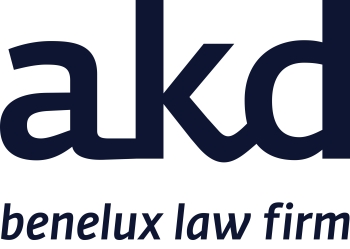On 4 February 2020 the Amsterdam Court of Appeal rendered a landmark judgment that the claims brought by claim vehicle CDC against Kemira Chemicals Oy (Kemira) were not time barred. Based on the EU principle of effectiveness and with reference to the European Court of Justice's (ECJ's) Cogeco ruling, the appeal court considered that claimants in cartel damage cases must be able to await the outcome of any administrative appeal against an infringement decision. The appeal court also confirmed the validity of the assignment model under Dutch law.
The appeal court's judgment provides additional legal certainty in the field of private antitrust enforcement. If upheld before the Dutch Supreme Court, this ruling will set a new standard wherein (Dutch) courts will be able to extend or even set aside applicable limitation rules from national regimes in follow-on proceedings.
On 11 June 2008 the European Commission found that Eka Chemicals AB, Akzo Nobel NV, Finnish Chemicals Oy (now Kemira), Erikem Luxembourg SA, Arkema France SA, Elf Aquitaine SA, Aragonesas Industrias y Energia SAU, and Uralita SA had participated from September 1994 to February 2000 in Europe-wide anti-competitive agreements and concerted forbidden practices on the sodium chlorate market. The European Commission imposed fines of more than €79 million on all groups of companies. A group of 12 aggrieved companies assigned and sold their claims to CDC. CDC initially filed a claim before the Amsterdam District Court against multiple cartelists. After various settlements, CDC pursued its claims solely against Kemira.
The district court confirmed the validity of the assignments to CDC under Dutch law. At the same time, the court considered that CDC's claims were governed by various national laws and concluded that these claims were time barred under the national limitation regimes. Both CDC and Kemira appealed to the court's judgment.
Principle of effectiveness and Cogeco
The appeal court confirmed the validity of the assignments to CDC. At the same time, it overturned the district court's decision regarding the statute of limitations. The appeal court held that the national limitation regimes should be interpreted in accordance with EU law. It must therefore evaluate whether the applicable national limitation regimes are compatible with the EU law principle of effectiveness. This principle obliges EU member state courts to ensure that national rules of procedure do not make it practically impossible or excessively difficult to render claims based on infringements of EU law.
The appeal court specifically referred to the ECJ's recent ruling in Cogeco (Case C-637/17), wherein the ECJ considered that short national limitation periods that start to run before a claimant could possibly be aware of the identity and liability of the cartelists and/or cannot be suspended or interrupted during proceedings before the (national) competition authority could be incompatible with Article 102 of the Treaty on the Functioning of the European Union (TFEU) (abuse of dominance) and the principle of effectiveness. If so, such national limitation periods should be set aside.
Based on Cogeco, the appeal court held that injured parties should have clarity on the identity and liability of all cartelists, the scope of the single and continuous infringement and the damage. For that, parties must be able to await the final EU administrative decision (including an appeal) and afterwards have sufficient time to bring their damage claims in private antitrust proceedings. As this was not the case for CDC's claims governed by Spanish, Swedish and Finnish law, these claims could not be considered time barred.
The appeal court's judgment embodies an extensive application of the EU law principle of effectiveness, which could introduce a new practice regarding limitation periods in private antitrust enforcement within the European Union.
It is specifically notable that cartelists that have not appealed against an infringement decision of the European Commission, which was the case for Kemira, are also affected by the appeal court's ruling. The appeal court held claimants would be able to adequately assess the amount of damages that they suffered only after the identity and liability of all cartelists involved is definitively established in appeal. As long as these appeal proceedings are ongoing, claimants have less fear to forfeit their rights to claim damages due to applicable national limitation rules. This also gives claimants more time and clarity in their decision making as to whether to start private enforcement proceedings to claim damages.
The appeal court's judgment could also have considerable implications on a defendant's choice to lodge an appeal against the initial infringement decision of the European Commission, as appealing such decision might extend or even set aside the applicable limitation periods to the benefit of the claimants.
Overall, if upheld by the Dutch Supreme Court, the appeal court's judgment could be favourable for EU-based claimants by ensuring that they can effectively pursue damages claims without having the risk that such claims would be prematurely time barred.





